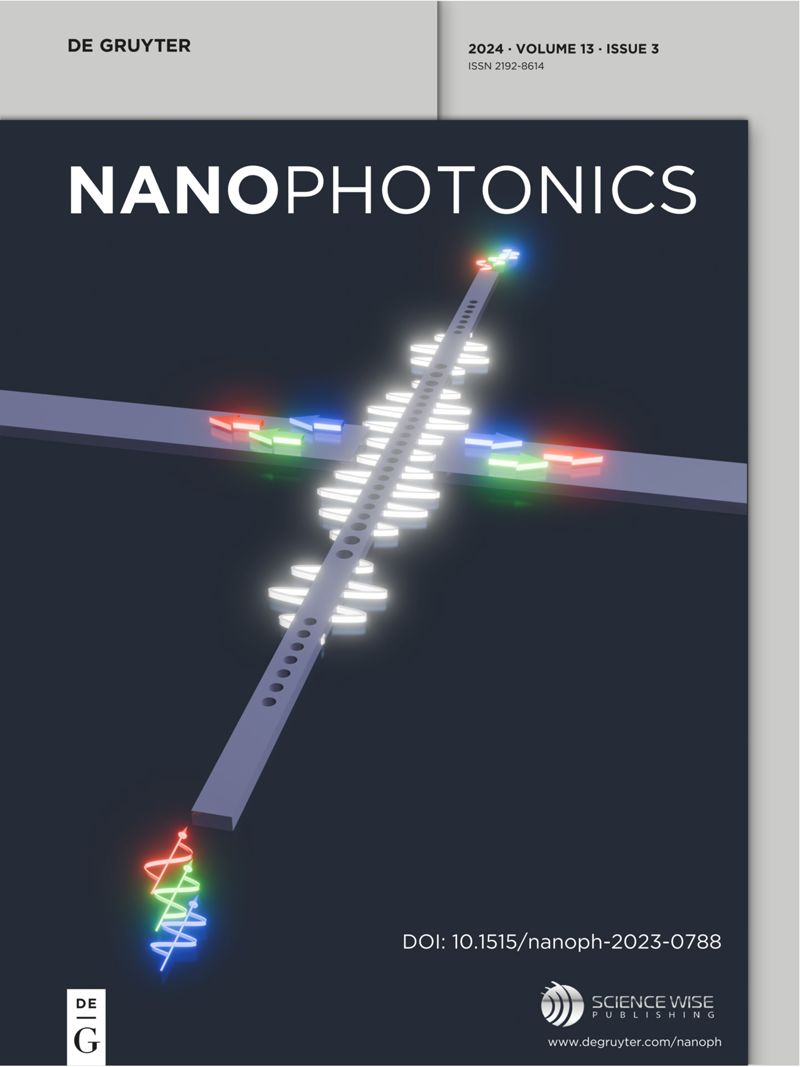Large-scale high purity and brightness structural color generation in layered thin film structures via coupled cavity resonance
IF 6.6
2区 物理与天体物理
Q1 MATERIALS SCIENCE, MULTIDISCIPLINARY
引用次数: 0
Abstract
Structural colors, resulting from the interaction of light with nanostructured materials rather than pigments, present a promising avenue for diverse applications ranging from ink-free printing to optical anti-counterfeiting. Achieving structural colors with high purity and brightness over large areas and at low costs is beneficial for many practical applications, but still remains a challenge for current designs. Here, we introduce a novel approach to realizing large-scale structural colors in layered thin film structures that are characterized by both high brightness and purity. Unlike conventional designs relying on single Fabry–Pérot cavity resonance, our method leverages coupled resonance between adjacent cavities to achieve sharp and intense transmission peaks with significantly suppressed sideband intensity. We demonstrate this approach by designing and experimentally validating transmission-type red, green, and blue colors using an Ag/SiO通过耦合腔共振在层状薄膜结构中大规模生成高纯度、高亮度的结构色
结构色是光与纳米结构材料而非颜料相互作用的结果,它为从无墨印刷到光学防伪等各种应用提供了一条前景广阔的途径。以低成本实现大面积高纯度、高亮度的结构色有利于许多实际应用,但对目前的设计来说仍是一项挑战。在这里,我们介绍了一种在层状薄膜结构中实现大面积结构色的新方法,这种结构色具有高亮度和高纯度的特点。与依靠单一法布里-佩罗空腔共振的传统设计不同,我们的方法利用相邻空腔之间的耦合共振来实现尖锐而强烈的透射峰,同时显著抑制边带强度。我们通过在熔融石英衬底上使用 Ag/SiO2/Ag/SiO2/Ag 配置设计和实验验证透射型红、绿、蓝三色来证明这种方法。测得的光谱具有窄谐振线宽(半最大全宽 ∼ 60 nm)、高峰值效率(40 %)和良好的边带强度抑制(∼ 0 %)。此外,通过调整二氧化硅层的厚度,可以轻松调整生成的颜色,相关色域覆盖范围比许多现有标准更广。此外,所提出的设计方法用途广泛,可兼容各种介电层和金属层的选择。例如,我们展示了利用高折射率 Ta2O5 作为介电层,制作出角度稳定的结构色彩。最后,我们展示了一系列基于所提结构的印刷彩色图像。本文介绍的耦合腔共振结构成功地缓解了传统分层薄膜结构在色彩亮度和纯度之间的权衡,为实现大规模、高性能的结构色彩提供了一条新颖、经济的途径。
本文章由计算机程序翻译,如有差异,请以英文原文为准。
求助全文
约1分钟内获得全文
求助全文
来源期刊

Nanophotonics
NANOSCIENCE & NANOTECHNOLOGY-MATERIALS SCIENCE, MULTIDISCIPLINARY
CiteScore
13.50
自引率
6.70%
发文量
358
审稿时长
7 weeks
期刊介绍:
Nanophotonics, published in collaboration with Sciencewise, is a prestigious journal that showcases recent international research results, notable advancements in the field, and innovative applications. It is regarded as one of the leading publications in the realm of nanophotonics and encompasses a range of article types including research articles, selectively invited reviews, letters, and perspectives.
The journal specifically delves into the study of photon interaction with nano-structures, such as carbon nano-tubes, nano metal particles, nano crystals, semiconductor nano dots, photonic crystals, tissue, and DNA. It offers comprehensive coverage of the most up-to-date discoveries, making it an essential resource for physicists, engineers, and material scientists.
 求助内容:
求助内容: 应助结果提醒方式:
应助结果提醒方式:


